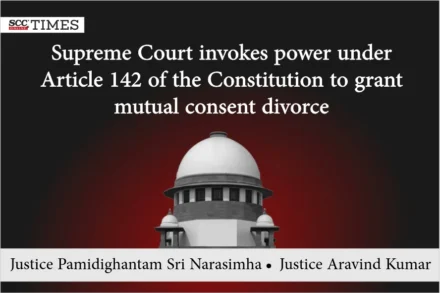
Supreme Court invokes power under Article 142 of the Constitution to grant mutual consent divorce
Supreme Court directed the parties to withdraw all the cases pending between them.

Supreme Court directed the parties to withdraw all the cases pending between them.
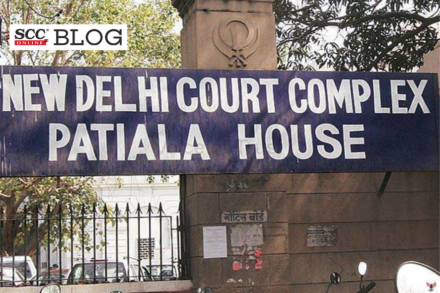
The wife’s intentional decision to leave the mater uncontested shows her desire that court should pass decree of divorce even at the cost of holding her guilty of matrimonial offence as she knows that no harm could be caused to her even if she is held to have treated the husband with cruelty because she has already obtained sufficient favourable orders from the Federal Circuit and Family Court in Australia.
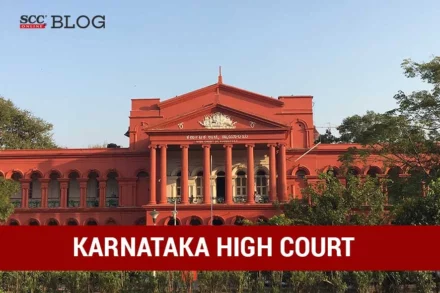
The High Court was bewildered that such a flawed rationale was applied to deny relief to an estranged couple.
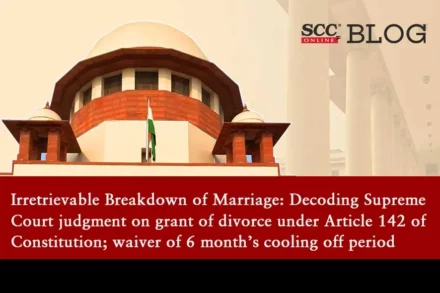
Given the expansive amplitude of power under Article 142(1) of the Constitution, the exercise of power must be legitimate, and clamours for caution, mindful of the danger that arises from adopting an individualistic approach as to the exercise of the Constitutional power, observed the Supreme Court
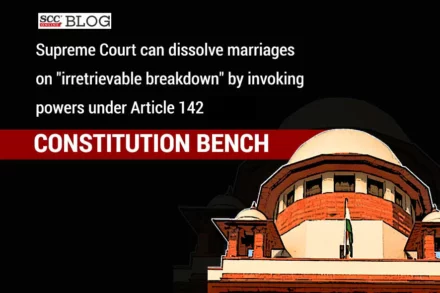
The Supreme Court also held that the mandatory waiting period of 6 months for divorce by mutual consent can be dispensed subject to requirements and conditions laid down in previous Supreme Court judgments.
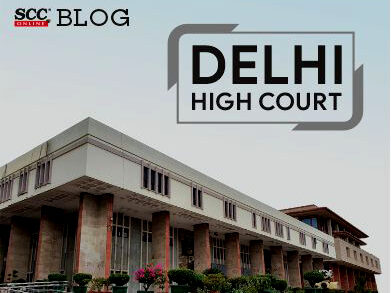
The Delhi High Court held that a borrower cannot ask for alteration of contract by way of a writ petition and a contract can only be altered through mutual consent between the parties.
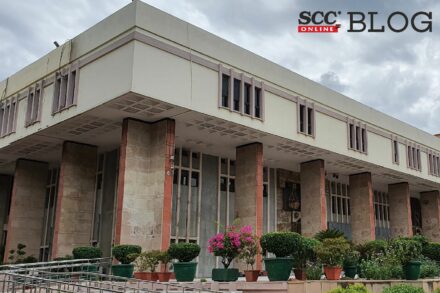
Delhi High Court: Noting that, Section 14 of the Hindu Marriage Act intends to discourage the couples from breaking the sacred bond

Family Court, Ahmednagar: Netra A Kank, J., allowed a petition granting a decree of divorce by mutual consent to the petitioners. The

Family Court Pune: M.R. Kale, J., granted a decree of divorce by mutual consent to a couple who due to difference of
Madhya Pradesh High Court: S.A. Dharmadhikari, J., decided in the matter of the petition which was filed challenging the order passed by

Family Court No. 3, Pune: M.R. Kale, J., addressed a petition for divorce by mutual consent under Section 28 of the Special
Punjab and Haryana High Court: The Division Bench of Ritu Bahri and Arun Monga, JJ., held that in case of child marriage,
Punjab and Haryana High Court: G. S. Sandhawalia, J., allowed the application for waiving off the mandatory period of six months for
Chhattisgarh High Court: A Division Bench of Prashant Kumar Mishra and N.K. Chandravanshi, JJ., reversed a decree of judicial separation passed by
Delhi High Court: Anu Malhotra, J., dismissed the petition in view of the dispute being settled mutually. The instant petition sought quashing of
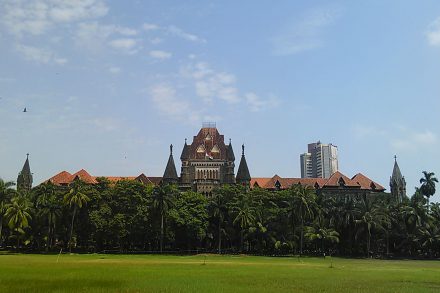
Bombay High Court: N.J. Jamdar, J., while addressing a revision application with regard to maintenance under Section 125 of Code of Criminal
Uttaranchal High Court: Lok Pal Singh, J. dismissed a writ petition where mandamus was sought to direct the Principal Judge of Family
Kerala High Court: The Bench of Alexander Thomas, J. hearing a civil writ petition, considered the legal validity of unilateral cancellation of
Kerala High Court: A Division bench comprising of C.K. Abdul Rehim and R. Narayana Pisharadi, JJ. allowed an appeal against the judgment